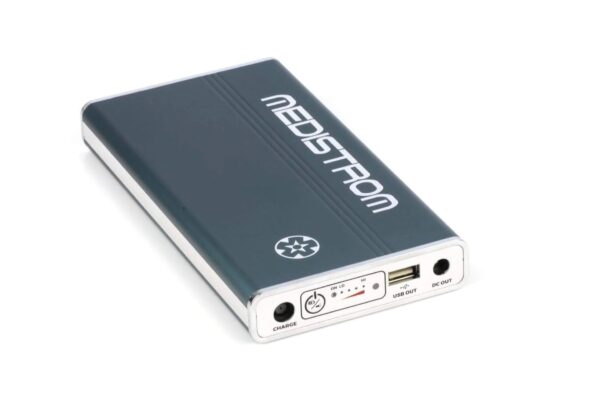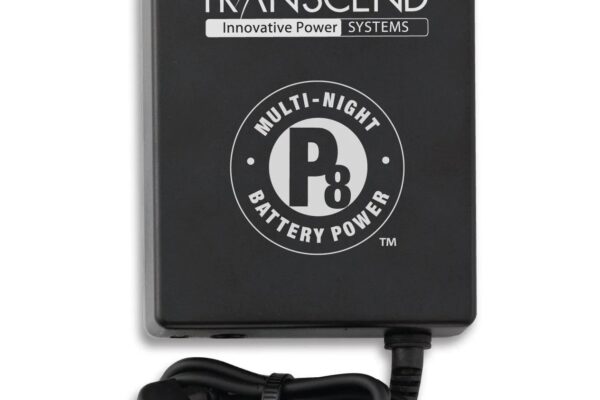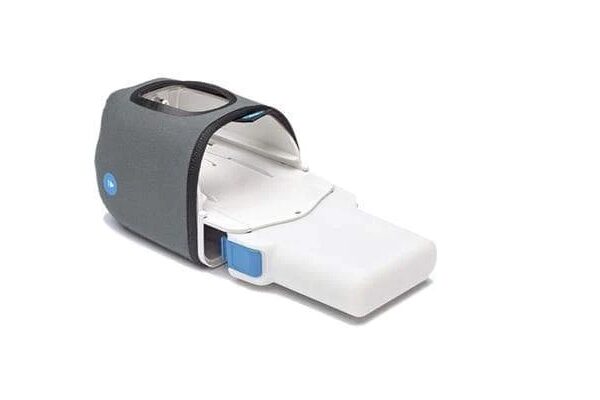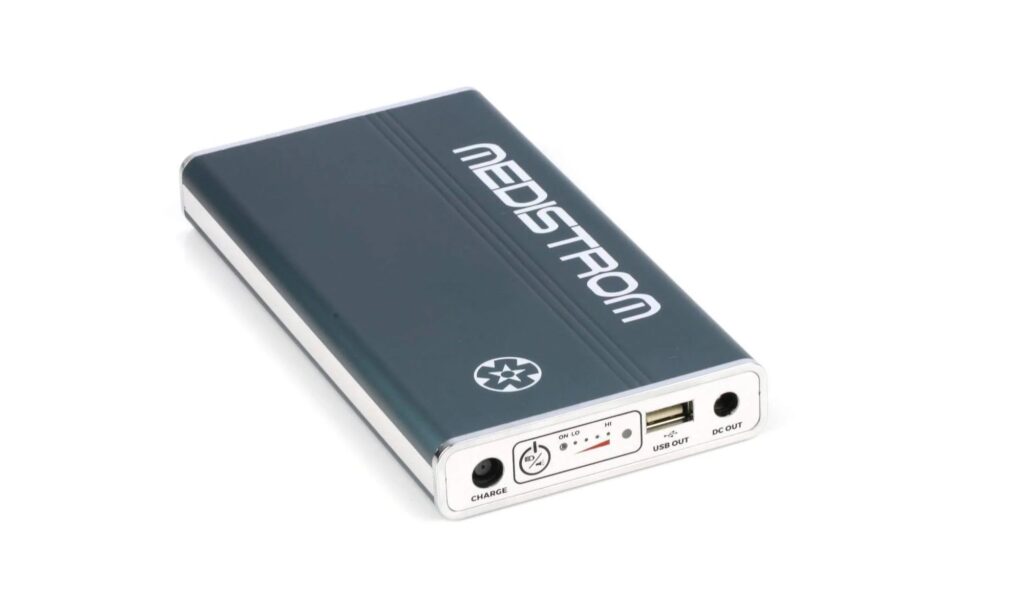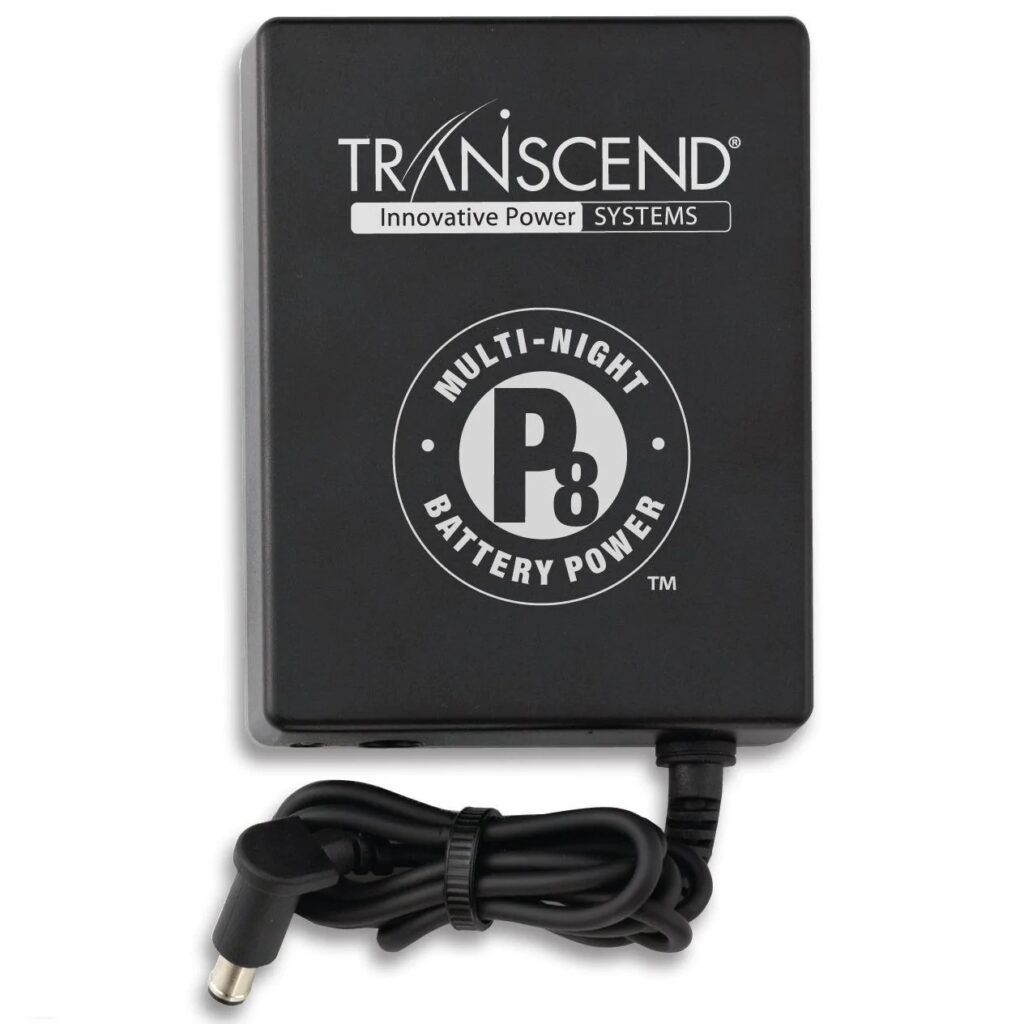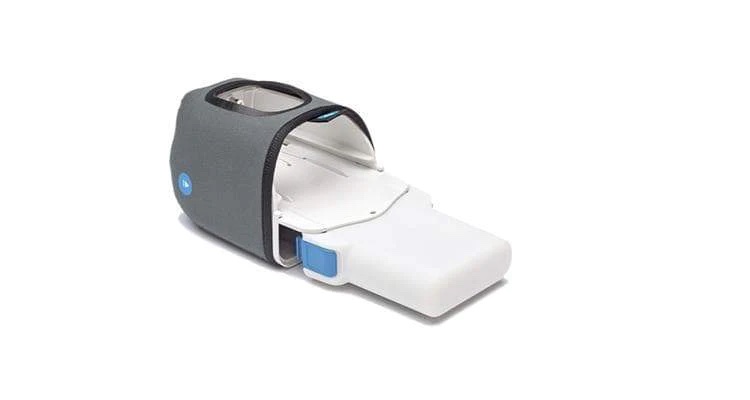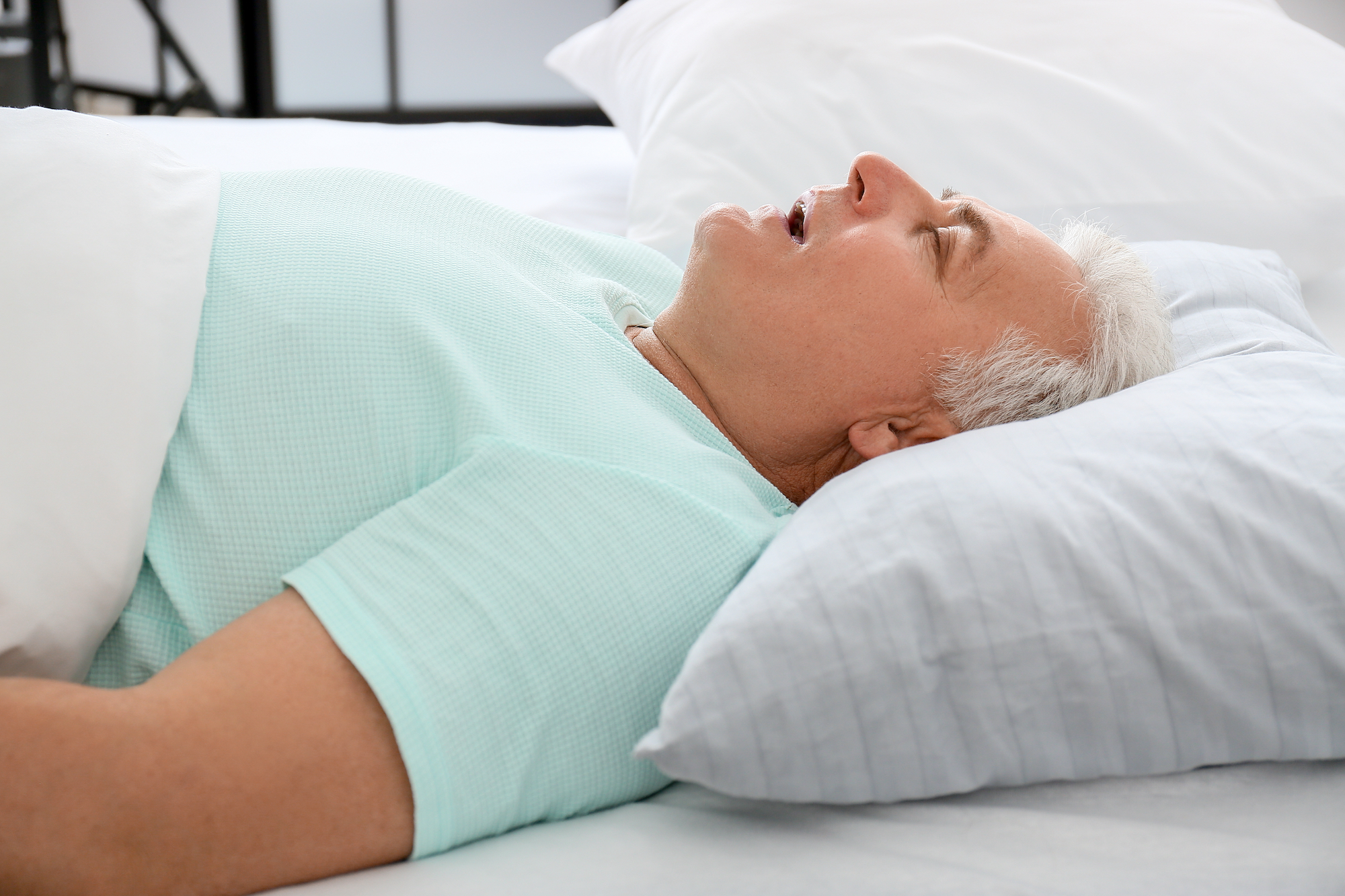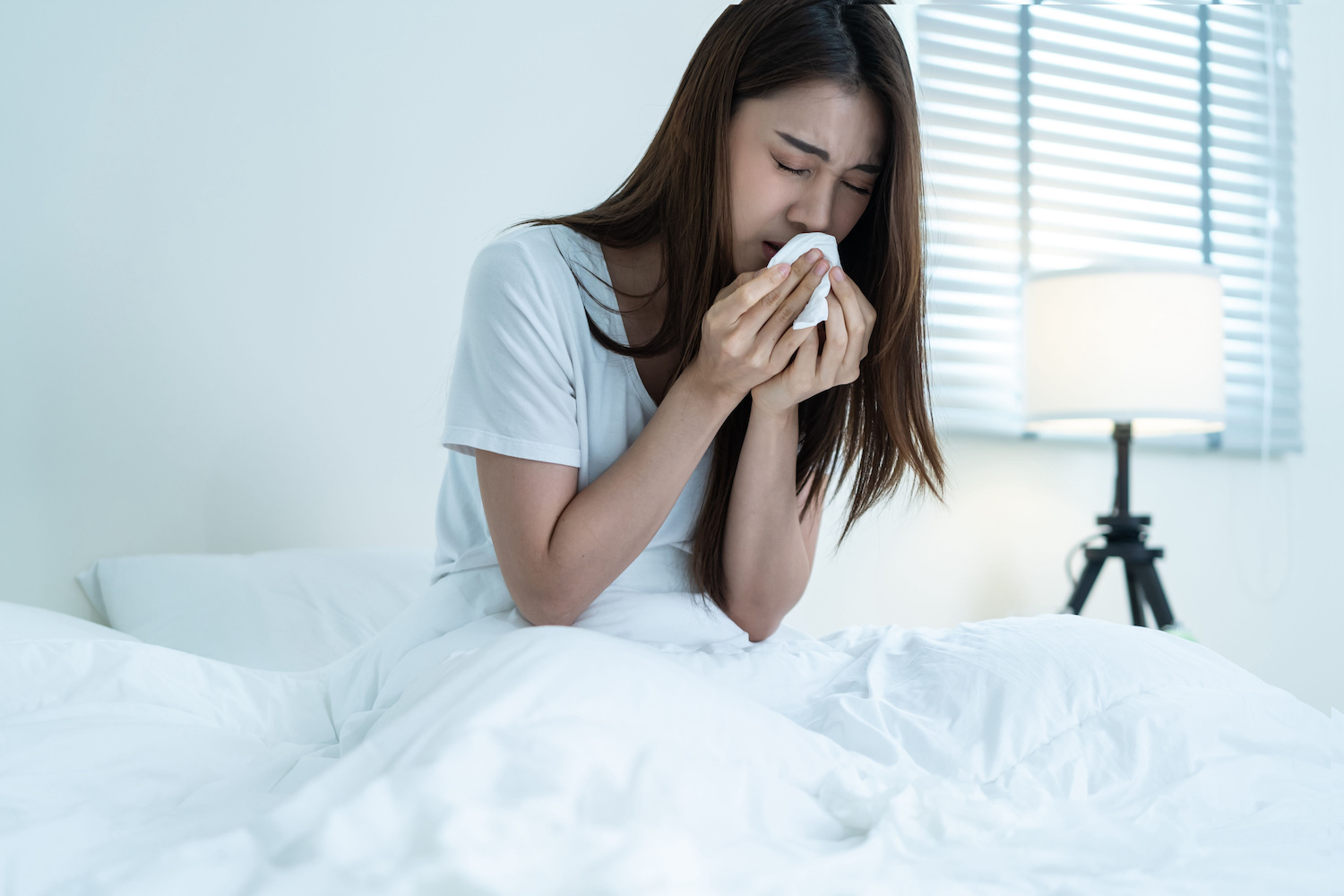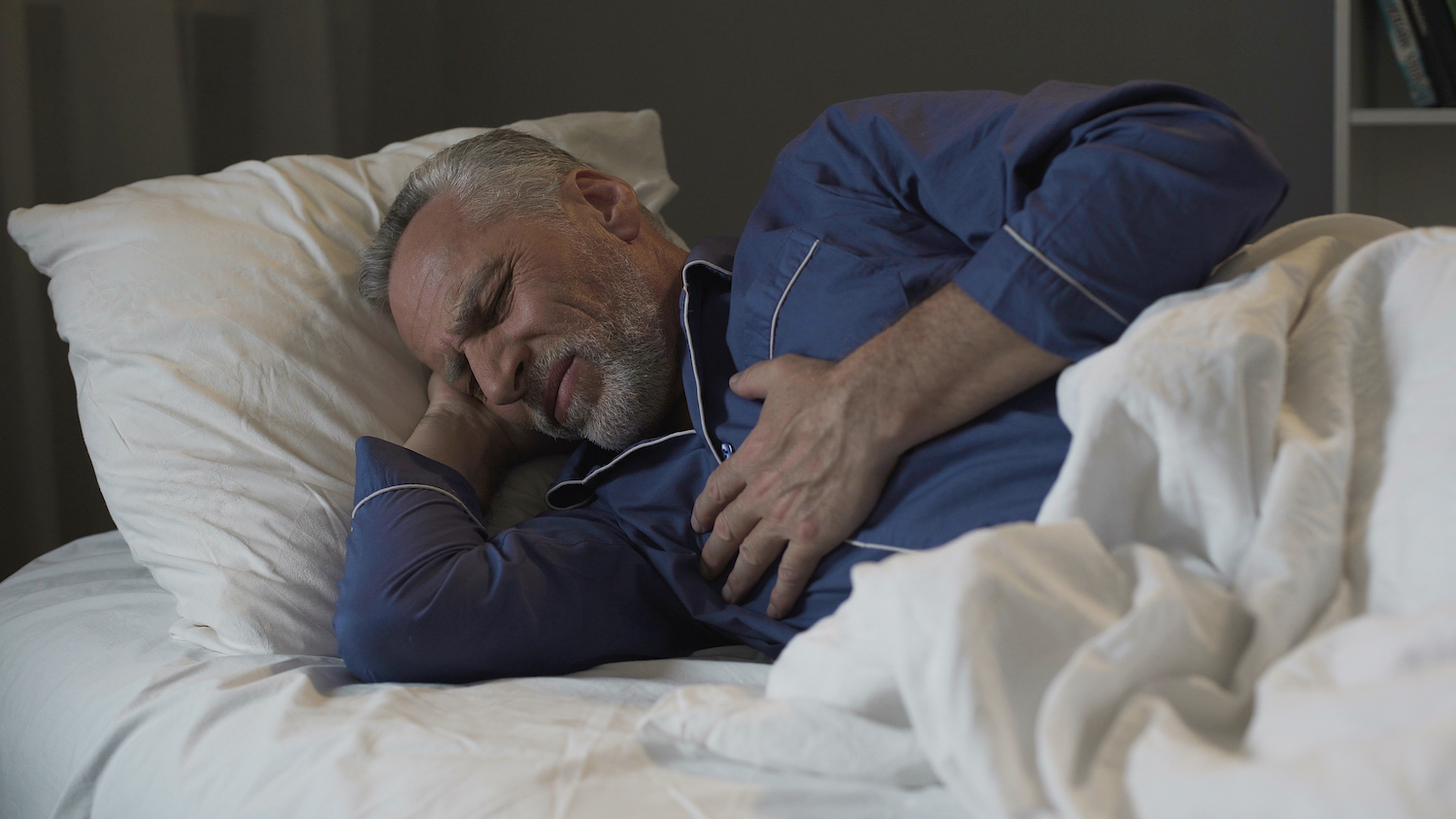Continuous positive airway pressure (CPAP) machines are the leading treatment for obstructive sleep apnea (OSA). Standard CPAP machines are intended to be plugged into an electrical outlet, though some CPAP users also purchase a battery to power their machine.
CPAP users can rely on a CPAP battery when electricity is unavailable, such as while camping or during a power outage. CPAP batteries can also be useful while traveling, particularly on a plane or when traveling in a country that uses different electrical outlets.
There are many factors to keep in mind when shopping for a CPAP battery, such as budget, charging time, and Federal Aviation Administration (FAA) compliance for those who plan to use their machine on airplanes. We’ll cover our top picks for CPAP batteries and what to consider when shopping for one.
Best Overall
Medistrom Pilot-24 Lite Battery and Backup Power Supply
Ideal For
- Customers looking for a battery that can be used for travel or as a power backup
- People interested in a lightweight battery
- Those wanting a battery with a quick charge time
Highlights
- CPAP users who want more than two nights of run time
- People who use multiple energy-intensive CPAP accessories
- Shoppers who use a battery while camping
-
Price
$339
-
Dimensions
3.5″ x 6.7″ x .78″
-
Noise Rating
95 Wh or 19,000 mAh
-
Weight
1.3 lbs.
The Medistrom Pilot-24 Lite Battery and Backup Power Supply, which is compatible with six popular CPAP machines, offers a range of popular features at a mid-range price-point.
At 1.1 pounds, the Pilot-24 Lite Battery is one of the lightest CPAP batteries available. It is 3.5 by 6.7 inches and .78 inches thick. Travelers may also appreciate that this battery is FAA-compliant, allowing it to be used with an FAA-compliant CPAP machine while flying.
Users can quickly determine the battery’s charge using the four charge indicator lights. The battery only takes two to three hours to fully charge using a standard outlet in the U.S. The average run time is 8 to 16 hours, though high air pressure levels combined with accessories like heated tubing or a heated humidifier may lead to a shorter run time.
The Pilot-24 Lite Battery has a lifespan of 500 complete charge and discharge cycles. The battery’s aluminum casing provides good protection, though people who camp regularly may prefer a more durable model.
The Medistrom Pilot-24 Lite Battery and Backup Power Supply has a one-year warranty against manufacturing defects.
Use this SleepApnea.org link for the most current discount on Medistrom products
Shop NowBest for Transcend Users
Transcend Portable Batteries from Somnetics
Ideal For
- People who want an ultra-lightweight CPAP battery
- CPAP users who want a battery with extra power
- Anyone interested in DC power or solar-powered charging
Who should keep looking
- Customers who need two nights of power on one charge
- CPAP users who do not use a Transcend CPAP machine
- Anyone who requires a fast charge rate
-
Price
$199
-
Dimensions
4″ x 3″
-
Weight
.6 to 1.1 lbs.
The Transcend P8 Battery is a portable battery intended for use with Transcend CPAP machines. It measures 3 by 4 inches, and its average run time is 14 hours. The battery is FAA compliant for use during flights.
Unlike other CPAP batteries, the Transcend P8 Battery can be charged using AC or DC power. Solar-powered charging is also available with the purchase of a solar power kit, which may appeal to people who regularly travel off-grid.
Users should note the P8 Battery takes six hours to reach a full charge, meaning the battery has a long charge time relative to its run time. The battery is not intended for use with the Transcend heated humidifier, which requires the P10 battery.
Transcend’s portable battery comes with a 9-month warranty against manufacturing defects.
Use this SleepApnea.org link for the most current discount on Somnetics products
Shop NowBest for Breas Users
Breas Z2 and Z1 CPAP PowerShell
Ideal For
- CPAP users with a high air pressure setting
- Those wanting a battery that can also act as a power backup
- Anyone who uses multiple energy-intensive CPAP accessories
Highlights
- Shoppers on a tight budget
- CPAP users who do not use a Breas CPAP machine
- Anyone who needs more than one night of power per charge
-
Price
$449
-
Wattage
99.4W
-
Weight
15.5 oz
Intended for use with the Breas Z2 and Z1 CPAP machines, the PowerShell offers nine hours of run time even when used on the highest pressure setting.
The PowerShell combines a powerful battery with a plastic shell that fits both the Z2 and Z1 CPAP machines. Users insert the machine into the shell to use the battery, potentially making the process easier for people with dexterity concerns.
While the average PowerShell has nine hours of run time, people who use a lower air pressure setting may get more run time from one charge. However, customers searching for a two-night battery may want to consider another option.
Plastic casing over the battery gives the PowerShell extra durability. Dropping the battery, however, may still damage the battery or break the plastic shell.
The PowerShell is FAA-compliant for in-flight use. It takes approximately eight hours to fully recharge, which may be a drawback for some travelers.
The Breas Z2 and Z1 CPAP PowerShell has a one-year warranty covering manufacturing defects.
Use this SleepApnea.org link for the most current discount on Breas products
Shop NowWhy We Picked These
Our team has decades of experience in the sleep product industry. This provides us with the necessary insight to analyze a wide variety of CPAP products on the market today and determine the best options for different sleeper types.
We weigh in-depth research, manufacturer reputations, and reviews from verified customers to present the best CPAP batteries on the market today. We also update our top picks on a regular basis to ensure you have the most current information available.
What to Consider When Choosing a CPAP Battery
The right CPAP battery is different for every sleeper and depends on a number of factors.
While compatibility with your CPAP machine is the most crucial element, it’s also important to consider your budget, whether a battery will last for your entire sleep time on one charge, and other features like FAA compliance for use on airplanes.
Keeping your needs and preferences in mind when shopping is the best way to find a CPAP battery that works for you.
CPAP Battery Considerations
| Price | Most CPAP batteries cost between $250 and $600, making them one of the more expensive CPAP accessories. If you are shopping on a budget, it’s important to double-check whether lower-priced models will power your CPAP machine for the length of your average sleep time. |
| Lifespan | While CPAP batteries are rechargeable, they do eventually wear out and stop holding a charge. Batteries with a higher price-point usually have a longer lifespan than less expensive options, and some batteries have a guarantee for the number of times they can be fully charged. |
| Run Time | In general, a higher battery capacity translates to a longer run time. Run time can also be affected by environmental factors — such as humidity and temperature — as well as the amount of power required to run your CPAP machine. Higher air pressure settings, humidifiers, and extra features can all require more power and shorten the expected run time. |
| Recharge Time | Many people use a CPAP battery due to limited outlet access, so it’s worth considering how quickly it takes a battery to fully recharge when plugged into a standard outlet. A battery that is not fully recharged may not be able to power your CPAP machine for the whole time you are asleep. |
| Durability | In addition to how well the design protects a battery from wear and tear, durability also involves a battery’s expected lifespan. People who plan to travel or camp with their CPAP battery should look for a durable model that can withstand both regular use and the rigors of travel. |
| Warranty | CPAP battery warranties vary by the manufacturer, but most CPAP batteries come with a one-year warranty that covers manufacturing defects. This warranty does not usually cover wear and tear or other damage caused by the owner. |
Battery Compatibility With Your CPAP Machine
The most important thing to consider when choosing a CPAP battery is finding one that is compatible with your machine, as not all batteries are compatible with all CPAP machines. Information on compatibility is typically available on the battery manufacturer’s website as well as online retailer product pages.
Inverters and Camping Considerations
- Inverter: Purchasing an inverter is an additional expense, but it easily allows you to keep your battery charged during road or camping trips. Most CPAP batteries are meant to be charged via a standard American outlet, which uses alternating current (AC) power. Since vehicles use direct current (DC) power, charging your CPAP battery from your vehicle requires an inverter to convert the DC power to AC power.
- Outdoor temperatures: Both temperature and humidity can affect batteries, meaning that some weather conditions may cause your battery to hold less power or even stop working entirely. Customers can usually find information on a battery’s ideal temperature range on the manufacturer’s product page or by asking the manufacturer directly.
- Altitude: Batteries can drain much faster at higher altitudes due to lower temperatures and a thinner atmosphere. This does not apply to airplanes, as they are heated and pressurized. If you plan to use your CPAP battery at high altitudes, consider choosing one with a high charge capacity or bringing more than one battery.
- Weight: People who have weight limitations for their supplies should consider the weight of their CPAP battery. The majority of CPAP batteries weigh between 1.3 and 2.3 pounds, though some specialized models may weigh slightly more or less. This weight can quickly add up, particularly if you plan to bring more than one battery.
- Accessories: CPAP accessories such as humidifiers and heated air tubing can make CPAP usage more comfortable, but they also draw additional power from your CPAP battery. Bulky accessories can add more weight to your luggage and take up room. Due to these challenges, it’s worth considering which of your CPAP accessories are worth bringing while you’re away from an electrical outlet.
- Type of trip and length: An off-grid camping trip may require more than one CPAP battery, as well as an inverter for charging in your vehicle. On the other hand, RV camping at a campground that has access to electricity may only require a CPAP battery as a backup in case of a power outage. When packing for your trip, it’s important to consider the details of your trip and what you need to sleep comfortably.
Do You Need a Prescription for CPAP Batteries?
While a prescription is required to purchase a CPAP machine and accessories like CPAP masks, customers can purchase CPAP batteries without a prescription.
This means that CPAP batteries can be purchased through non-specialized retailers, though specialized CPAP retailers are likely to have a larger selection and more in-depth information about compatibility.
Does Insurance or Medicare Cover Your CPAP Battery Costs?
CPAP batteries are not considered necessary medical equipment and are therefore not eligible for Medicare or insurance coverage. However, it may still be worthwhile to ask your provider whether you qualify for an exception.
CPAP Batteries
As with other CPAP accessories, CPAP batteries can be purchased through brick-and-mortar stores or online. Since CPAP batteries do not require a prescription, they may also be available through non-specialized online retailers such as Amazon.
| Retailer | Benefits | Drawbacks |
|---|---|---|
| Brick-and-Mortar CPAP Retailer |
|
|
| Online CPAP Retailer |
|
|
| Online General Retailer |
|
|
Like CPAP machines, not all CPAP batteries can be used when flying. The FAA provides guidelines that CPAP batteries must adhere to in order to be considered safe for air travel. Even if you do not plan to use your battery while flying, it must still be packed in your carry-on baggage rather than checked luggage.
If you have an FAA-compliant CPAP machine and plan to use it while flying, look for a CPAP battery that is also FAA-compliant. This information will be listed on manufacturer websites and online retailer product pages.
Like other vehicles, RVs have a battery that uses DC power. While this is not a problem when connected to the power grid, you may need an inverter to charge your CPAP battery when camping off-grid or during power outages.
Some RVs — particularly those with residential appliances — come with one or more inverters pre-installed. If this is the case, the information will be listed on the manufacturer’s website. If your RV does not have an onboard inverter, it may be worth purchasing one to make full use of your RV’s battery when you do not have access to electricity.
Your vehicle can be an easy way to keep your CPAP battery charged while camping or on a road trip, but doing so requires an inverter. The inverter changes the DC power of the car battery to AC power, which makes it safe to charge your CPAP battery. Some inverters only have USB or outlet plug-ins, so shoppers should make sure they are able to charge their battery in their car before purchasing.
Still have questions?
Sleep apnea products can be confusing. If you need individualized assistance, send us an email at [email protected] with your questions and we'll help find the best fit for you.


